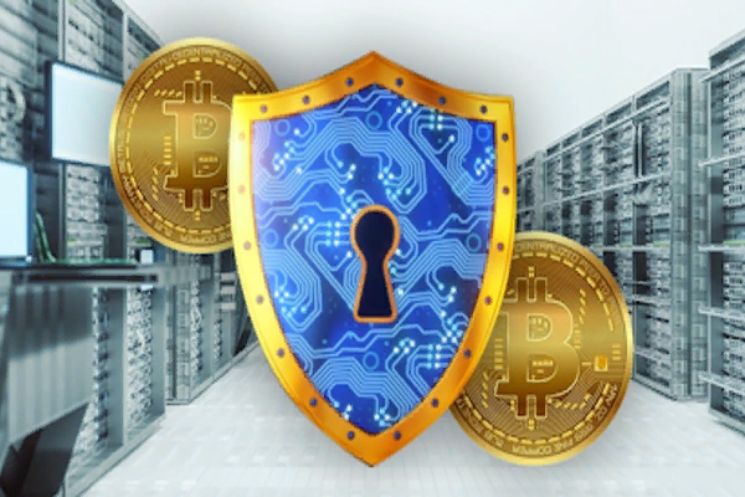What Is Crypto Custody?
Crypto custody refers to the procedure of protecting assets from theft. Custodians, who you may employ to manage your cryptocurrency on your behalf, serve as guardians of your funds, whether in cash, stocks, gold bars, or digital assets. One of the foundational elements of the conventional banking system, custodians, has existed since the 1960s.
The custody of cryptocurrencies operates quite differently. Since all information and transactions are recorded on a public ledger known as the blockchain, digital asset custodians aren't holding any of the assets. Instead, they protect users' private keys, essential to a crypto wallet, since they allow access to the money stored within.
For digital assets to be widely used, crypto custodians are crucial. Even now, a lack of security prevents many institutional investors from purchasing digital assets. Regulation mandates that organisations that manage significant sums of money, such as hedge funds, pension funds, investment banks, and family offices, have a custody partner to protect their customers' money.
How does crypto-custody operate?
As required by law, all custodians in conventional banking are financial institutions. But with cryptocurrencies, owners may act as their custodians. Using gold bars as an example, you have two options for keeping them secure: either you hide them beneath your bed for your protection or pay a third-party custodian to lock them in a vault guarded by security personnel. With that in mind, you should know the two primary categories of crypto custody.
Self-custody
Self-custody, as previously mentioned, refers to having physical possession of your wallet's private key. As a result, only you have access to and can demonstrate ownership of your money. However, enormous power also entails immense responsibility. Being your custodian entails full control over your finances, but it also implies that you take on all associated risks. Your cryptocurrency will probably be lost forever if you forget the private key or lose access to your physical device (cold wallet).
Third-party custody
People who want to avoid managing their accounts or find dealing with the technology too scary may wish to contact a third-party custodian. These are incorporated, licensed financial institutions authorised to operate as custodians on a state- or federal level.
This kind of cryptocurrency custodian maintains the security of their client's assets by safely storing the private keys to their wallets. From the user's perspective, it is comparable to having a bank checking account. You must submit know-your-customer and anti-money laundering checks when you sign up to open an account.
What is the price of third-party crypto custody?
Just like normal banks do when you have a checking or savings account, providers often charge several fees to secure your money. Fees may apply when moving cryptocurrency in and out of your account. These expenses often fit into one of the three categories listed below:
• Custodial fee: Each year, custodians want a particular percentage based on the value of the assets they are in charge of. Typically, this is under 1%.
• A set-up fee: is charged when a custody account is opened. It's important to note that certain cryptocurrency custodians don't charge anything to register an account for a user.
• Unlike the third-party crypto study, a withdrawal fee is charged each time you withdraw cryptocurrency from your account. Self-custody allows you to avoid paying custody, set up, and withdrawal costs but anticipate it to be partially free. To keep the private key secure, the user must take care of the wallet and purchase a storage item.
Pros and cons of crypto custody
Consider your demands first while deciding which crypto custody solution to use. The best choice will depend on your investment style, holdings, and level of technological familiarity.
Self custody
Pros:
• Your account is only accessible to you.
• No counterparty risk
Cons:
• You can't get to your coins if you lose your key.
• Your assets are not insured.
• Self-custody of crypto-assets doesn’t inevitably indicate privacy
• Censorship Resistance: Governmental organisations frequently decide what transactions are allowed and are not allowed.
• Sound Money and Inflation Resistance: It is nearly hard to determine the real supply of assets held by custodians until clients take ownership.
Third-party custody
Pros:
• The caretaker handles everything.
• Beginners have easier access.
• Assets under the custodians' management are insured.
• You earn interest on the cryptocurrency you deposit by staking or lending through the third-party custodian.
Cons:
• The custodian has authority over your coins. Your assets may be put on ice, your wallet may be locked, or withdrawals may be restricted.
• Risk to a third party: A custodian may be hacked or declare bankruptcy.
• Fees may mount up.
Custodians negatively impact usability, privacy, censorship resistance, and inflation resistance. Self-custody ensures that these characteristics are still present.
 cryptonews.net
cryptonews.net
